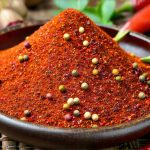Acute pancreatitis is a sudden inflammation of the pancreas, a vital organ responsible for digestion and hormone regulation. It can range from mild discomfort to a severe, life-threatening illness. Understanding the causes, recognizing the symptoms, and knowing how it’s treated are crucial steps in managing this condition effectively. Early diagnosis and appropriate care significantly improve outcomes and reduce complications. This article will delve into the details of acute pancreatitis (K85.90 as per ICD-10 coding), providing a comprehensive overview for those seeking information about this often debilitating health issue.
What is Acute Pancreatitis?
Acute pancreatitis occurs when the pancreas becomes inflamed suddenly. The pancreas produces enzymes that help digest food, and these enzymes are normally activated only when they reach the small intestine. In acute pancreatitis, these enzymes become activated within the pancreas itself, causing inflammation and damage to the organ. This can happen rapidly over a few hours or days. It’s important to differentiate it from chronic pancreatitis, which is a long-term inflammatory process. Acute pancreatitis doesn’t necessarily lead to chronic pancreatitis, but severe acute episodes can increase this risk. The severity of acute pancreatitis varies widely; some cases resolve with conservative treatment while others require intensive care and intervention. Understanding the underlying cause is key to proper management and prevention of recurrence.
Common Symptoms and Associated Conditions
The most common symptom of acute pancreatitis is sudden, severe pain in the upper abdomen. This pain often radiates to the back and may be worsened by eating or drinking. The pain can come on very quickly and may last for several days. Nausea and vomiting are also frequently experienced, as well as a fever, rapid pulse, and a swollen, tender abdomen. In some cases, individuals might experience jaundice (yellowing of the skin and eyes) if there’s an obstruction affecting bile flow.
Associated conditions can sometimes indicate underlying causes or complications. Gallstones are a very common association, often being the primary driver of acute pancreatitis episodes. Heavy alcohol use is another significant risk factor. Less frequently, certain medications or infections can contribute to the development of the condition. Complications such as pancreatic pseudocysts (fluid-filled sacs near the pancreas), infection, and kidney failure can arise in severe cases, necessitating specialized care.
Causes and Risk Factors
The two most common causes of acute pancreatitis are gallstones and excessive alcohol consumption, accounting for approximately 80% of cases. Gallstones can block the common bile duct, which also drains pancreatic enzymes, leading to a buildup and eventual inflammation. Chronic heavy drinking (generally considered more than 3-5 drinks per day over many years) can directly damage the pancreas and disrupt its normal function.
Beyond these primary causes, several other factors can increase risk:
- Family history: Having a family member with pancreatitis may suggest a genetic predisposition.
- Certain medications: Some drugs, including certain diuretics, antibiotics, and immunosuppressants, have been linked to pancreatitis.
- Hypertriglyceridemia: High levels of triglycerides (a type of fat) in the blood can contribute to pancreatic inflammation.
- Trauma or surgery: Injury to the abdomen or surgical procedures around the pancreas can sometimes trigger acute pancreatitis.
- Infections: Certain viral or bacterial infections can occasionally lead to it.
- Hypercalcemia: High calcium levels in the blood.
- ERCP (Endoscopic Retrograde Cholangiopancreatography): This procedure, used to diagnose and treat bile duct disorders, carries a small risk of inducing pancreatitis.
Diagnosis, Treatment, and Living with the Condition
This section will cover how acute pancreatitis is diagnosed, what treatment options are available for managing it, and what changes individuals can make to live comfortably with the condition after an episode or when managing chronic risks. It’s important to understand that treatment varies significantly based on the severity of the condition and any complications that arise. The goal of treatment focuses on relieving pain, preventing dehydration, supporting organ function, and addressing the underlying cause.
Diagnosis and When to See a Doctor
Diagnosing acute pancreatitis typically involves several steps. A doctor will start with a thorough medical history review, asking about symptoms, alcohol consumption, medication use, and family history. A physical examination will be conducted to assess abdominal tenderness and other signs of inflammation. Blood tests are crucial, as they can reveal elevated levels of pancreatic enzymes (amylase and lipase), which indicate pancreatic damage. Imaging tests, such as a CT scan or MRI, help visualize the pancreas and identify any complications like fluid collections or pseudocysts.
When to see a doctor: Seek immediate medical attention if you experience sudden, severe abdominal pain that radiates to your back, particularly if accompanied by nausea, vomiting, fever, or rapid heartbeat. Do not attempt to self-diagnose or treat this condition at home. Delays in diagnosis and treatment can lead to serious complications.
Treatment Options
Treatment depends on the severity of the pancreatitis.
- Mild cases: Typically managed with intravenous (IV) fluids for hydration, pain medication, and a temporary NPO (nothing by mouth) status to allow the pancreas to rest. As symptoms improve, a liquid diet is gradually reintroduced, followed by solid foods.
- Moderate to severe cases: Require hospitalization and more intensive care. This includes IV fluids, strong pain management, antibiotics if infection is present, and potentially nutritional support through a feeding tube or intravenous nutrition (TPN).
- Complicated cases: May involve endoscopic procedures (like ERCP) to remove gallstones blocking the bile duct, drainage of fluid collections, or even surgery to remove damaged pancreatic tissue.
If gallstones are determined to be the cause, cholecystectomy (gallbladder removal) is often recommended after recovery to prevent future episodes. For alcohol-induced pancreatitis, complete abstinence from alcohol is essential for preventing recurrence and further damage.
Living with [Diagnosis]
Following an episode of acute pancreatitis, lifestyle adjustments can significantly impact long-term health.
- Diet: Following a low-fat diet is generally recommended to minimize pancreatic stimulation. Avoiding alcohol entirely is crucial if it was a contributing factor.
- Hydration: Maintaining adequate hydration helps support overall health and pancreatic function.
- Pain management: Chronic pain can sometimes develop after acute pancreatitis, requiring ongoing pain management strategies.
- Follow-up care: Regular follow-up appointments with your doctor are essential to monitor pancreatic function and address any complications.
- Smoking cessation: Smoking can exacerbate inflammation and worsen outcomes; quitting smoking is highly recommended.
Summary
Acute pancreatitis is a serious condition that requires prompt medical attention. Recognizing the symptoms – particularly sudden, severe abdominal pain radiating to the back – is crucial for early diagnosis. The primary causes are gallstones and excessive alcohol consumption, but other risk factors exist. Treatment ranges from conservative management with IV fluids and pain medication to more intensive interventions like surgery or endoscopic procedures depending on severity. Lifestyle modifications, including dietary changes and abstaining from alcohol, are essential for long-term health after an episode.
Have you been diagnosed with acute pancreatitis? Share your experience or ask your questions in the comments — we’re here to help.


















